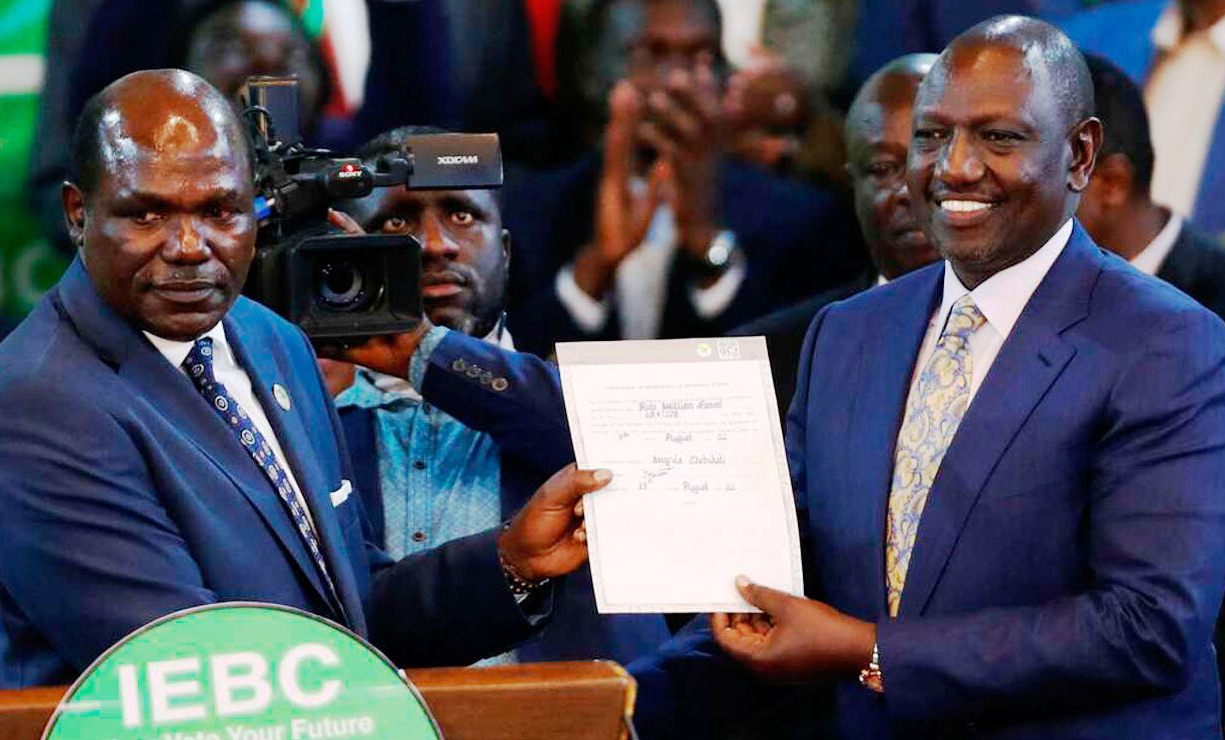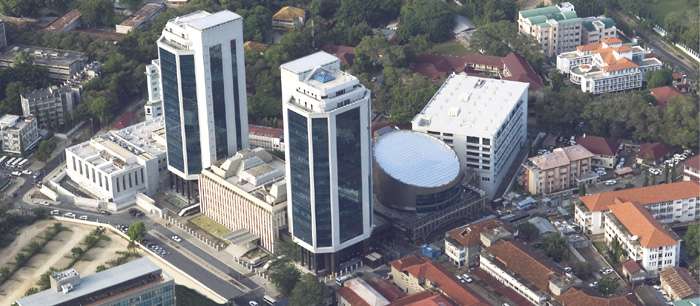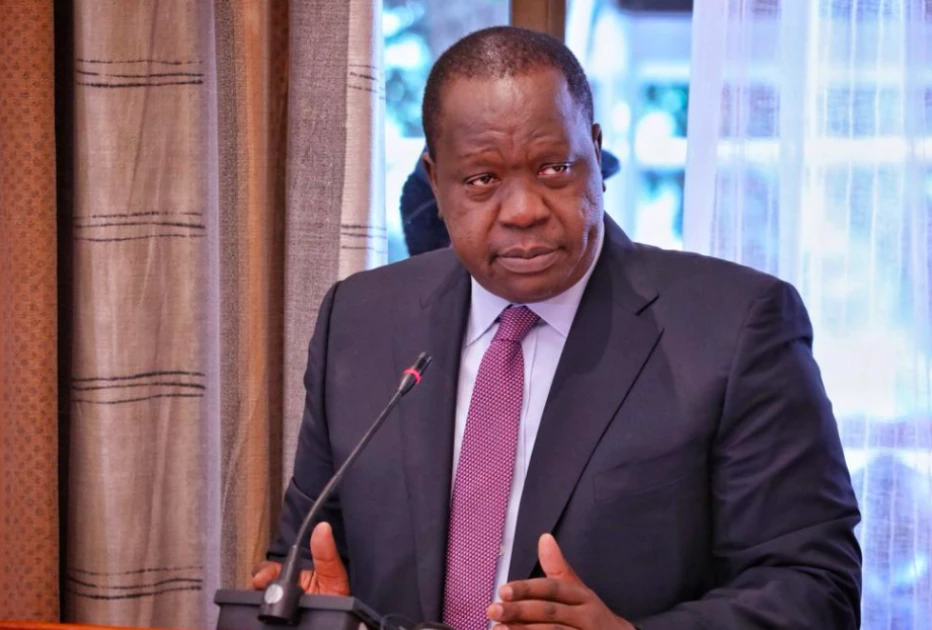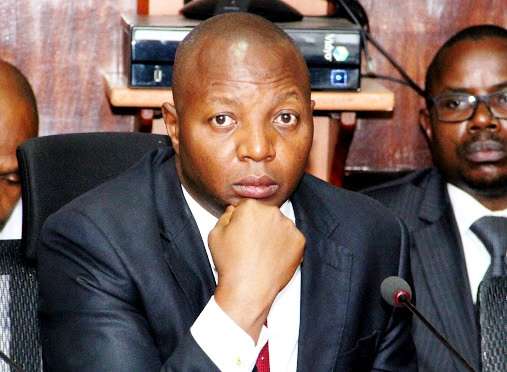Wafula Wanyonyi Chebukati first rose to national prominence when he assumed leadership of the IEBC after being appointed by retired President Uhuru Kenyatta on 17 January 2017, for a six-year term. He succeeded Ahmed Isaack Hassan, who had been forced to step aside following a series of street protests.
Chebukati’s leadership was immediately tested when the IEBC’s ICT Manager, Chris Msando, was murdered just days before the 2017 elections. Msando’s body was discovered on 31 July 2017 in Kikuyu, on the outskirts of Nairobi, alongside the body of an unidentified woman
Wafula Chebukati, the former chairman of the Independent Electoral and Boundaries Commission (IEBC), has passed away after a prolonged illness at the age of 63. Family spokesperson Erick Nyongesa Wafula confirmed the news, stating that the family has not yet decided whether to conduct a post-mortem. “Once the family has made a decision on whether they wish to proceed with a post-mortem, and after consulting with the doctors, we will be able to explain to the nation what may have caused his death,” Nyongesa told journalists at Lee Funeral Home.
President William Ruto paid tribute to the former IEBC chair, describing him as “a principled and diligent leader who served the nation with integrity.” “I have received the news of the passing of former Independent Electoral and Boundaries Commission Chairperson Wafula Chebukati with profound sorrow. His death is a great loss to our country. Our thoughts and prayers are with his family and friends during this difficult time. Rest in peace,” said the president.
In a statement, IEBC Chief Executive Officer Marjan Hussein Marjan expressed his sorrow at the loss of “a great leader who was full of humour, listened attentively to important issues affecting the commission’s mandate, and was a man of few words who truly understood the sensitivity of the office.”
“The commission, along with the rest of Kenyans, remembers with fondness the good memories and acknowledges the significant impact that the chairman had as he diligently served in the role. During his tenure, Chebukati oversaw the conduct of two general elections in 2017 and 2022, as well as one fresh presidential election in 2017. He stood out as a beacon of hope, embodying the commission’s mandate and demonstrating tireless dedication to the rule of law,” Marjan stated.
Marjan also highlighted Chebukati’s notable achievements, which led to the commission winning the Election Management Award and being named a runner-up for the Electoral Ergonomic Award at the 19th International Electoral Awards ceremony in Lisbon, Portugal, in 2023.
Reports of Chebukati’s death began circulating on Friday morning, amid growing speculation about his health in recent weeks. Earlier in the week, reports had suggested that he had been declared clinically dead, with most of his organs no longer functioning.
Wafula Wanyonyi Chebukati first rose to national prominence when he assumed leadership of the IEBC after being appointed by retired President Uhuru Kenyatta on 17 January 2017, for a six-year term. He succeeded Ahmed Isaack Hassan, who had been forced to step aside following a series of street protests.
Chebukati’s leadership was immediately tested when the IEBC’s ICT Manager, Chris Msando, was murdered just days before the 2017 elections. Msando’s body was discovered on 31 July 2017 in Kikuyu, on the outskirts of Nairobi, alongside the body of an unidentified woman.
In response, Chebukati stated, “In our minds as a commission, the only issue is who killed him and why, and that is the question that must be answered.” He called for increased security for all his staff and was subsequently provided with round-the-clock protection, including six additional police officers.
Msando had been tasked with testing the Kenya Integrated Electoral Management System (KIEMS), designed to prevent voter fraud in the 2017 polls. Despite the tragedy, Chebukati led the commission through a tense election cycle, ultimately declaring Uhuru Kenyatta the winner.
However, the Supreme Court, led by then-Chief Justice David Maraga, annulled the presidential election results in a landmark ruling, citing irregularities. The court ordered a re-run within 60 days. Chebukati’s commission had declared Kenyatta the winner by a margin of 1.4 million votes. Chief Justice Maraga ruled that the election had not been “conducted in accordance with the constitution” and declared it “invalid, null and void.” The ruling was supported by four of the six Supreme Court judges.
The announcement prompted celebrations among opposition supporters, both inside and outside the courtroom. However, the ruling did not attribute any blame to President Kenyatta’s party or campaign, but rather pointed to the IEBC’s failure to conduct the election in compliance with constitutional requirements. The aftermath saw widespread protests, in which at least 28 people were killed, sparking fears of political violence similar to the 2007 post-election crisis.
Chebukati was once again thrust into the spotlight during the repeat presidential election, which opposition leader Raila Odinga boycotted. This period was marked by protests, internal conflicts within the IEBC, and the resignation of Commissioner Roselyn Akombe, who accused the commission of being compromised. Amid mounting pressure, Chebukati dismissed CEO Ezra Chiloba in 2018, citing violations in election management.
In 2022, Chebukati once again found himself at the centre of controversy when IEBC official Daniel Musyoka was murdered under unclear circumstances. Raila Odinga rejected the presidential election results, leading to a Supreme Court battle. The court upheld William Ruto’s victory, dismissing Odinga’s petition due to lack of evidence.
Chebukati’s tenure ended with a dramatic fallout between him and four IEBC commissioners, led by Vice-Chair Juliana Cherera, who rejected the results due to a “mathematical absurdity.” After retiring in January 2023, Chebukati largely withdrew from public life, preferring privacy after years in the national spotlight. A lawyer by profession, he had previously founded Cootow & Associates Advocates and briefly ventured into politics, contesting the Saboti parliamentary seat in 2007 under the ODM ticket, though he lost to Eugene Wamalwa.
Away from politics, Chebukati was an avid golfer, having served as both captain and chairman of the Mombasa and Nyali Golf Clubs. Chebukati’s tenure at the IEBC marked a defining period in Kenya’s electoral history. Whether regarded as a steadfast leader who upheld democracy or a polarising figure in the country’s political landscape, his legacy will remain a crucial part of Kenya’s democratic journey for years to come.





